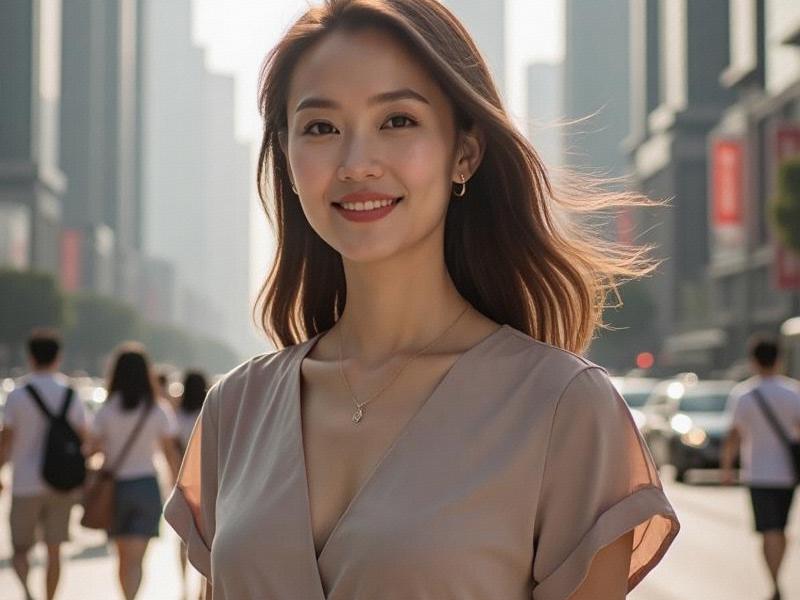Shanghai Style Revolution: How the City's Women Are Redefining Chinese Beauty Standards
⏱ 2025-07-03 21:04 🔖 上海龙凤娱乐联盟
📢0℃

The morning rush at Xintiandi's Starbucks reveals a fascinating phenomenon - rows of Shanghai women applying makeup with the precision of artists while simultaneously checking stock prices on their phones. This everyday scene encapsulates the unique duality of Shanghai's modern women: deeply connected to global trends while maintaining distinctly local sensibilities.
Shanghai has long been China's beauty laboratory, tracing back to the 1920s when "Modern Girls" first embraced Western hairstyles and cosmetics. Today, the city's beauty scene generates ¥87 billion annually, with local women spending 42% more on cosmetics than the national average according to 2024 market research.
上海龙凤419贵族 The "Shanghai Look" that's gaining global attention represents a calculated rebellion against uniform beauty standards. While K-beauty promotes glass skin and Western brands push contouring, Shanghai's style leaders like influencer Xiao Xue promote "smart beauty" - lighter makeup for the office paired with bold lipstick for evening cocktails at Bar Rouge. This adaptability reflects the city's pragmatic cosmopolitanism.
Skincare routines showcase similar innovation. Traditional Chinese medicine ingredients like ginseng and pearl powder now appear in high-tech serums at local brands like Pechoin and Herborist. The result? A 73% increase in exports of Shanghai-formulated cosmetics to Southeast Asia last year.
上海花千坊419
Fashion tells another story. While luxury logos remain popular, a new wave of Shanghai designers like Helen Lee is gaining traction by reinterpreting qipao silhouettes with contemporary fabrics. The "New Shanghai Woman" wardrobe might pair a ¥15,000 Comme Moi blazer with ¥120 silk pajama pants from local brand Ms MIN - a mix of investment pieces and accessible chic.
上海花千坊龙凤 The business implications are profound. Shanghai-based beauty app Xiaohongshu (Little Red Book) now influences 68% of Chinese cosmetics purchases, while local live-streaming queens like Viya sell ¥300 million in beauty products monthly. International brands from L'Oréal to Estée Lauder have established Asia R&D centers in Shanghai to tap this market.
Yet challenges persist. The municipal government's 2024 "Healthy Beauty" initiative cracked down on unlicensed cosmetic procedures amid growing health concerns. Meanwhile, educated Shanghai women increasingly reject extreme diet culture, with gym memberships up 210% since 2022 as fitness replaces thinness as the beauty ideal.
As Shanghai prepares to host the 2026 International Cosmetic Innovators Forum, its women are writing a new playbook for global beauty - one that values intelligence as much as appearance, tradition alongside innovation, and above all, the confidence to define beauty on their own terms.
Shanghai's New Femininity: How Urban Women Are Reshaping China's Social LandscapeNeon Renaissance: How Shanghai's Elite Clubs Are Redefining China's Nightlife EconomyThe Shanghai Modern: How Women Are Redefining China's Global City"Neon Algorithms: How Shanghai's Nightlife Districts Are Reinventing Luxury Entertainment"The Velvet Rope Revolution: Inside Shanghai's Next-Gen Entertainment PalacesThe Shanghai Paradox: Where Quantum Computing Meets Qing Dynasty TeahousesShanghai's Nightlife Renaissance: How Luxury Clubs Are Redefining Urban EntertainmentShanghai Beauties: A Glimpse into the Elegance and Diversity of Shanghai's WomenShanghai 2025: Where Futuristic Ambition Meets Timeless HeritageShanghai 2045: The Making of a Neo-Futurist Megacity
Shanghai 2035: The Future of China's Global Gateway CityShanghai's Metamorphosis: Where Ancient Water Towns Meet Quantum ComputingNeon Renaissance: How Shanghai's Entertainment Clubs Are Redefining Urban NightlifeThe Phoenix Rising: Shanghai's ¥87 Billion Nighttime Economy TransformationShanghai's Feminine Frontier: How the City's Women Are Rewriting China's Gender NarrativeShanghai Style Revolution: How the City's Women Are Redefining Chinese Beauty StandardsThe Yangtze Delta Powerhouse: How Shanghai and Neighboring Cities Are Rewriting China's Urban Playbook"Avatars & Absinthe: How Shanghai's Nightclubs Are Reinventing Hedonism in the Metaverse"Shanghai 2030: The Making of the World's First Intelligent MegalopolisNeon Renaissance: How Shanghai's Nightlife Empire is Winning the Post-Pandemic World

